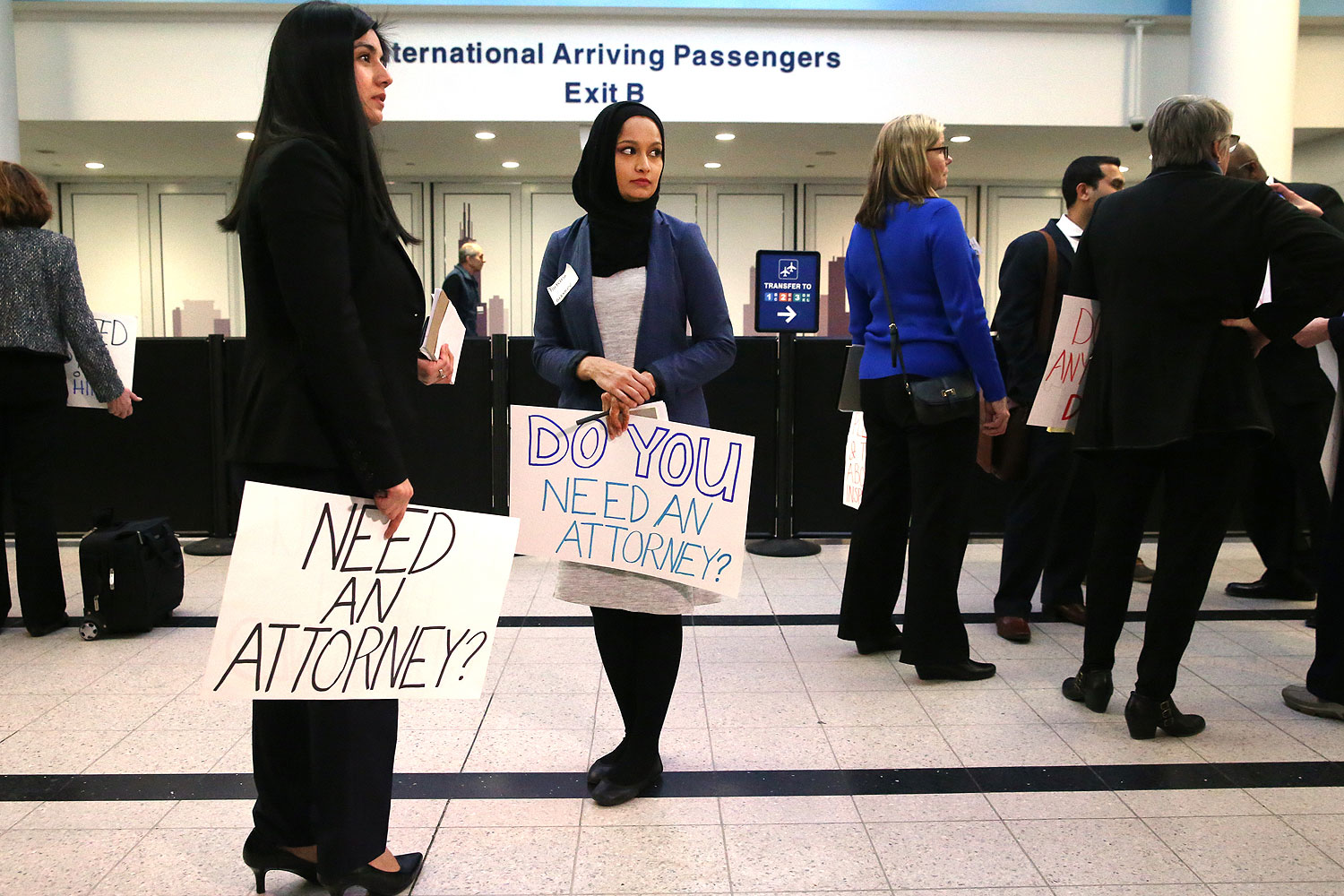Last weekend thousands of Chicagoans descended on O'Hare's international terminal to protest Donald Trump's executive order curtailing immigration—and travel—from seven majority Muslim countries. At first, the ban even prevented green card holders, legal residents of the United States, from entering the country; today the State Department said that 60,000 visas were revoked following the order, while an attorney for the government said in federal court that the number was 100,000.
Inside the airport, another impromptu action was taking place. Lawyers, some with specialties in immigration but not all, gathered inside the terminal to do… something, as the hours following the executive order were what a federal judge today called "chaos."
"The International Refugee Assistance Project, IREP, sent out a call to lawyers who could get to airports," says Rachel Brady, a lawyer with the disability-rights organization Equip for Equality." That call landed in fertile soil, in the form of Lawyers for Good Government, a Facebook group that formed immediately after the election; tens of thousands joined in just three days, and it had 120,000 members by last month. "There were 15 or 20 people on the original [O'Hare lawyers] email, then it got cc'ed, adding a couple more at a time, and ballooned to a list of 300; support was accumulating of people wanting to be there," she says.
The group scrambled to set up assistance in a fluid situation, walking the international terminal with signs made from notebook pages offering help, with 30-some lawyers sharing just a couple of power outlets. They'd arrived expecting mostly to help refugees, so they studied up on things like "credible fear" interviews, which can be used to prevent deportation if the refugee can make a case that he or she would be persecuted or tortured if returned home.
But the ban proved broader than expected. The Department of Homeland Security had interpreted the ban so as to permit green-card holders to still travel, but the White House overruled DHS. So they had to shift gears.
"Most of them are green card holders, lawful permanent residents, so we had to advise someone who lives here—'I live in the South Loop, how do I get home? What do I do about my cat?'" Brady says. They passed out guides for writing petitions of habeas corpus, challenging why people were being held without cause.
Meanwhile, they were organizing themselves. They got conference tables, power adapters, and printers. The airport gave them space to store their files overnight. Donations started coming in. "Somebody posted on Twitter that we needed extension cords; five showed up," Brady says. "Someone sent a $50 gift card to McDonald's so we could eat. We got a shipment of eye drops, tampons, and cough drops."
Now they have hundreds of lawyers working three six-hour shifts from 6 a.m. to midnight, fact sheets in four languages for passengers and their families explaining their legal rights, a workflow system with intake managers and social-media people, and interpreters translating the signs they use to canvass the terminal. [Full disclosure: after I started reporting this story, my wife did a shift at O'Hare.]
"In three days we went from being people holding notebook paper with 'Do you need legal assistance' to triaging immigration cases," Brady says. "I was overwhelmed by a feeling of hopelessness, by all the horrible things that are happening. I’m a lawyer, I want to serve. I already called my senators, what next?"
After days of pressure, the White House eased restrictions on green-card holders, but lawyers are still working their airport shifts; they will be on site until at least February 6, Brady says. For now, the ORD Lawyers group is asking people to follow them on Facebook to stay updated.




